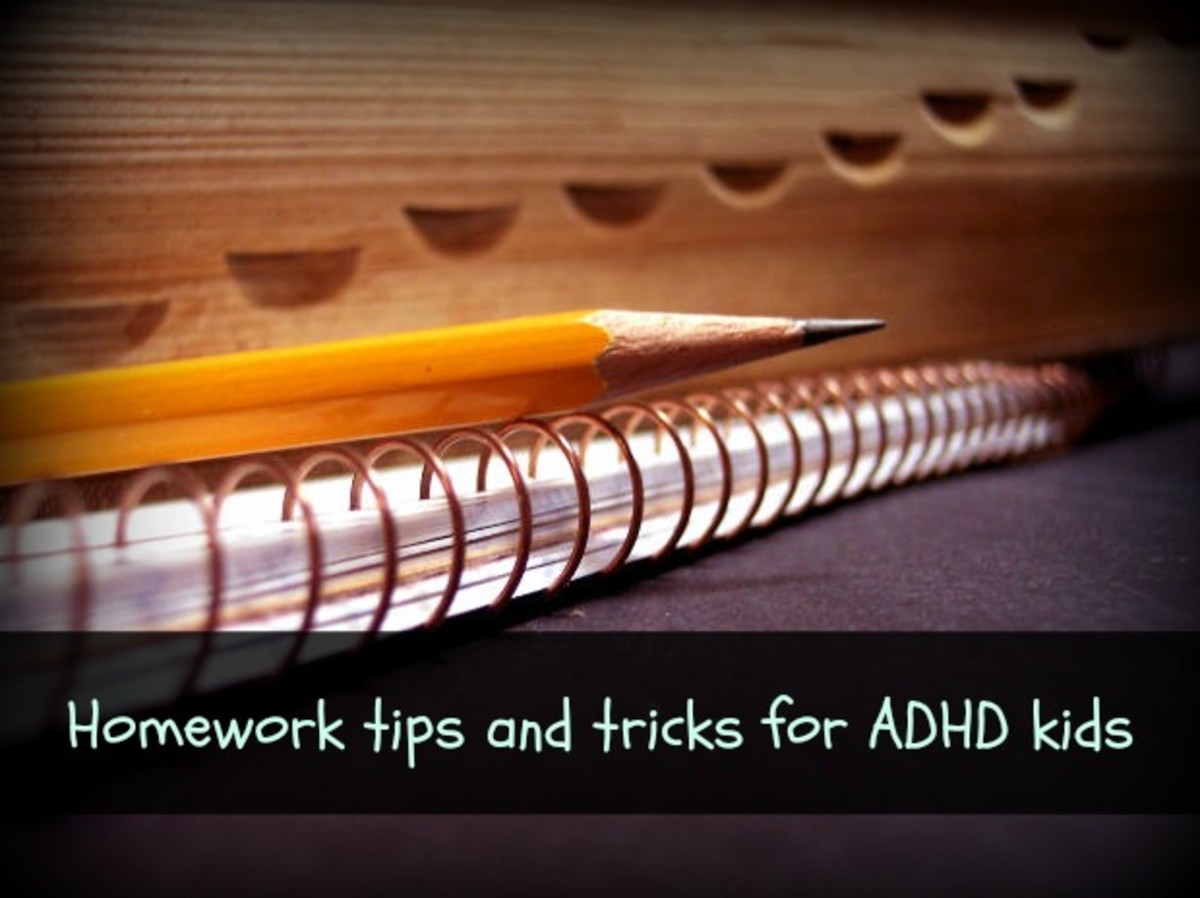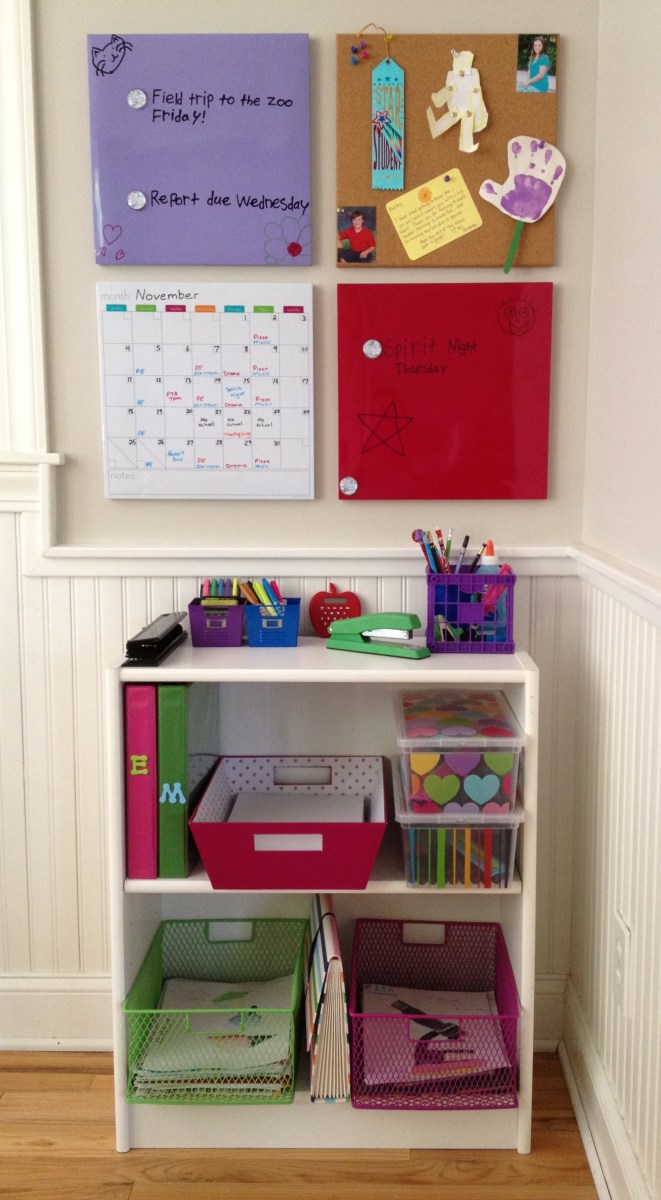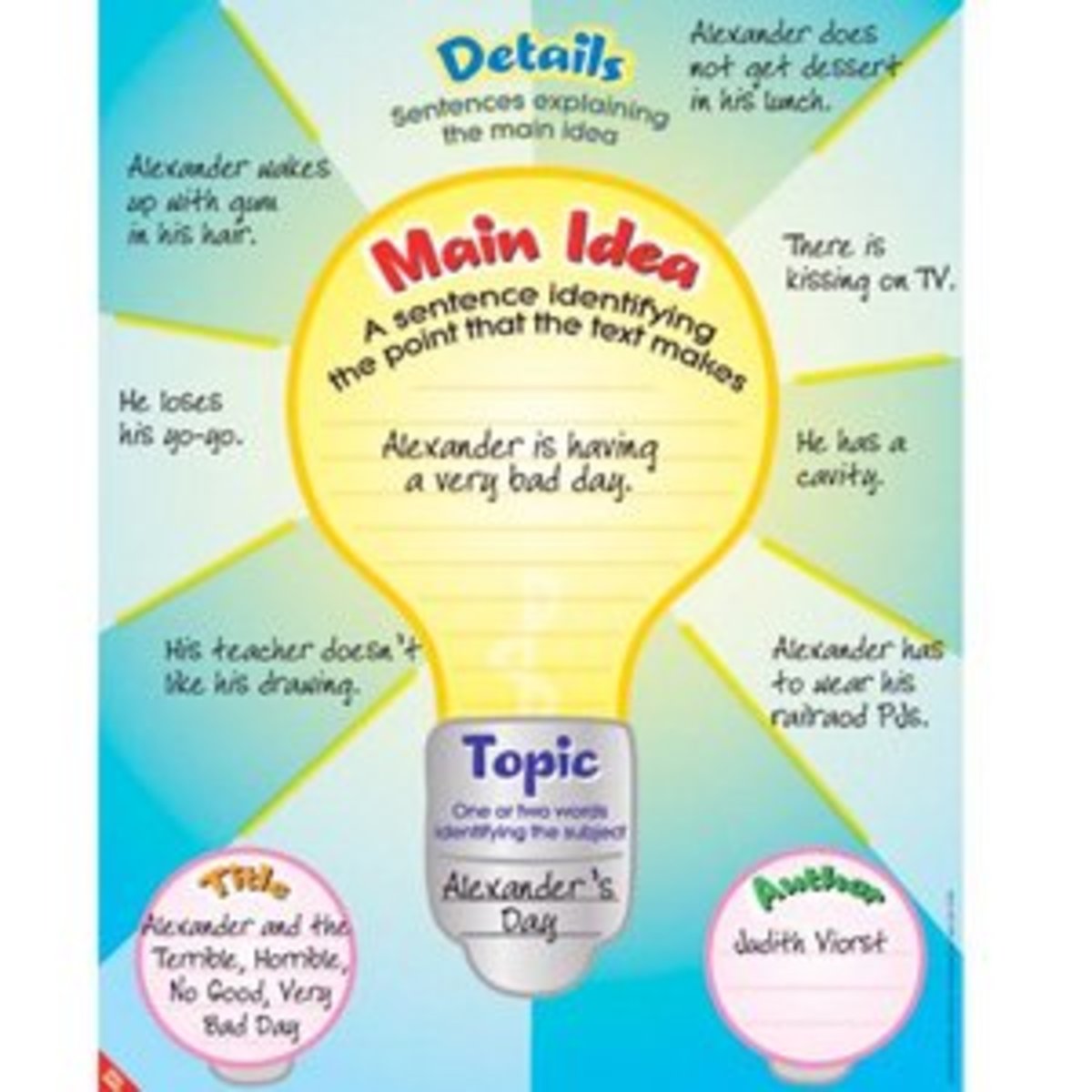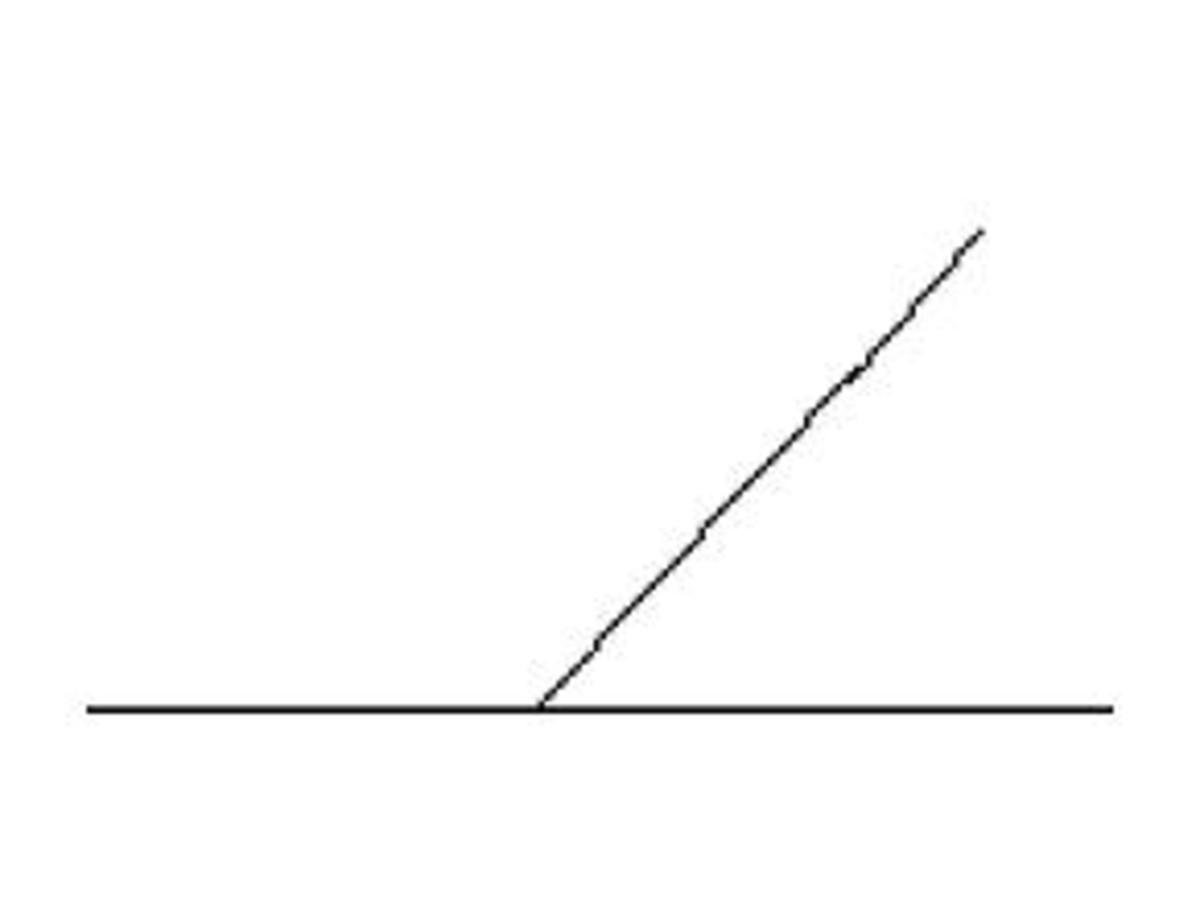How to Help your ADHD Kid Stay Organized

Attention Deficit Disorder and Attention Deficit and Hyperactivity Disorder (otherwise known as ADD or ADHD, respectively) are the hot keywords on the elementary school sidelines. But ADD and ADHD don't just affect elementary aged kids. The older they get, the harder it is to overcome difficulty focusing in school.
Medication is helpful, and sometimes necessary, for severe focus problems. But there are other tools kids need to get organized and stay focused. Not all kids with 'attention deficit' tendencies need to resort to medication. And not all are even diagnosed. Some who are officially diagnosed and medicated are misdiagnosed. Sometimes, all it takes is a little extra support for kids to learn how to become organized.
During the tween years, its common for kids to be disorganized. Assignments get lost, papers don't get turned in. This can lead to grades that don't represent the level of work your chid is actually capable of. Teachers may often tell you that your child simply needs to apply herself. Some parents resort to punishments. While taking away priviliges can help a child re-evaluate their priorities, it's not going to do a lot for the kid who doesn't actually understand how to improve their grades. Those kids will just feel like their teachers hate them, and their parents are punishing them for it.
This article isn't just for kids with Attention Deficit Disorder (ADD or ADHD), the tips that follow can help any child get back in control of their schoolwork.
Teach To Succeed
We teach our kids how to read and write. To wash their hands after they use the restroom and before eating. We enforce rules about making beds, putting dishes into the sink, and where shoes and jackets belong. But when it comes to homework, most parents expect their kids to be able to sit down, do it, and get it to school on their own. The process sounds so simple. But while kids learn the above chores through watching us demonstrate, homework skills are something they are left to devise on their own.
Some kids can read between the lines. At school, they think to pack the math book they'll need for tonight's asignment. They know to sit down with paper, pencil and ruler. And then they remember to pack their homework neatly away where they can quickly access it during school.
Others will need to track down and borrow a book, sit down then need to get up for an eraser, a ruler, a pencil sharpener, and an extra sheet of paper. They'll be up and down like a pogo stick, and when they're finally done, they'll return the math book with the paper still in it. (Unless they leave the paper sitting on the kitchen counter, or inside the dryer where they had to stop and find some fresh socks on the way to their backpack.)
These are the kids that need intervention, not punishments.
If your child is struggling, start by asking what they think the problem is. You might get some interesting insight. Kids know a lot more about what's going on in their heads that we tend to give them credit for. Then address their concerns. Follow up with your own concerns. Homework is important. School is important. Hopefully that basic belief is an inherent part of your family life already.
Explaining to them the importance of homework, and how it really does affect their grade, helps to put things in perspective. Yes, sometimes homework is boring and repetitive. But even the assignments that require coloring flower petals to match addition sums are showing the teacher the child's skill level, practicing basic rote skills, and helping your child develop their study habits. If a kid is in the habit of coming home, sitting down, doing an assignment and returning it to school, it makes it easier to sit down and focus on the important assignments when they get older.
If your child is already onto the bigger, important assignments, they need help developing their 'come home, sit down with all your materials, do your work, pack it appropriately in your backpack' routine. For that, you need to provide them with encouragement and a toolbox.
Tip:
When a large report gets assigned, sit down with your child and break it into pieces. They need a plan for what needs to get done in what order. Then they need help creating a reasonable timeline.
Help them create a list of questions they'll need to answer in their report to help them take notes as they read. Choose fun things to add to the report as well, like illustrations and a map. Encourage them to concentrate on one portion at a time, so that when everyone else is panicking all you have left to do is put the pieces together and add a cover.
Find the Right Tools
You wouldn't try to hammer a nail into the wall using your fist. And while a high heeled shoe might work in a pinch, the best way to get that nail into the wall at the right angle without damagng anything else is going to be by using a hammer.
When you're dealing with a child who has focus problems you need to fill their tool box with the right tools, if you want them to use a hammer rather than their fist or that handy high heeled shoe.
The toolbox isn't something that anyone can prefill for you. You'll have to do some experimenting to figure out which tools are right for your child. But here are a few suggestions to try out, just to get you started.
When dealing with focus problems, over organizing sometimes comes in handy. By placing extra emphasis in the organization, kids learn to stay organized simply through practice. Eventually, you stop needing to put so much focus on it.
- The Planner: There are a multitude of daily planners out there. Get one with enough space to have dedicated areas for each class, every day. Teach your child to write down every assignment every day, and then to use a checkmark when they're done. You can also use a planner to help your child break a larger project into smaller pieces so they don't get overwhelmed. Give them a deadline for a project outline, for a rough draft, for the final draft and when to put the entire presentation together (preferably several days before the due date) This helps keep them on track, and reminds them regularly of an assignment that they will need to be working on.
- The Binder: Not everyone does well with a binder. Those flimsy holes in paper frequently rip, and assignments fall out. Handouts that didn't go through the 3 holed punch end up scrunched at the bottom of a backpack, even under the best of intentions. A nice alternative is a pocket portfolio. If you choose a portfolio, look for a sturdy one that will hold up to the abuse an elementary aged kid will put it through. Label each pocket. Then go through it once a week with your child to rearrange papers that were stuffed loosely into the portfolio into their proper pockets. A nice benefit to the portfolio is that they can easily leaf through it while it's propped between their lap and a desk, whereas a binder needs to be spread out.
- A Pencil Case: It sounds obvious, but is often overlooked. Kids need to have a way to quickly and easily access pencil, eraser and a pencil sharpener. Keep them all in a case that's clipped to the outside pocket of their backpack, or fits just inside their portfolio or binder. Include a pad of small sticky notes, too.
- A Homework station: If you don't want your kid getting up and shedding homework papers all over the house while they search for an extra pencil or spare sheets of lined paper, set up a mobile homework station. You can buy lapdesks with pockets, or make your own with a tri-fold piece of cardboard. Keep it stocked with paper, pencils, a spare notebook, erasers, colored pencils, markers and crayons as well as scissors and glue for last minute projects. Having everything in one place means your child won't be distracted when they need something not at hand, and they can keep focused on their assignments. They're more likely to finish each one before they end up in the kitchen searching for a snack, and you're less likely to find half their flash cards sitting in the laundry room where they were searching for scissors to cut the rest out.
Speaking of tools...
These tips will help the kid with Attention deficit tendencies; but some kids have more extreme problems. If your child constantly struggles to focus, and can't concentrate for long enough to get a task done, you still need to talk to a dr or therapist about further tools. There are dietary interventions and supplements that can help. Medication is also an option; although many feel it should be a last resort.
If you are considering medication and looking for new tools to help your child, look up Healing the New Childhood Epidemics by Dr Kenneth Bock.
Remember that having the right tools may be half the battle, but it's only half. Nagging kids might help get results but it does't actually teach them anything. So, if you really want to help your child succeed (especially if they have attention deficit tendencies) you need to teach them to use the tools in their toolbox.
Ask questions. Make those questions specific. Asking if they have homework isn't good enough. Ask what they did in English, Math, Science and Social Studies. Then ask if each class, in turn, had any homework. Ask to see their agendas. Look through the planner, and help them list any after school activities that are coming up. If there is an assignment due at the end of the week, help them plan time to do the assignment. They may want to get Friday's homework done on Thursday, but if Thursday night is basketball night they won't have time.
Teach them how to prioritize, too. If there are 3 assignments due this week, one on Tuesday and the other two on Thursday, Tuesday's work takes precedence. Even if Thursday's work is more interesting and fun. Kids also need to learn which assignments to focus their energy on. If they are getting an A in English and have some coloring to do on their poetry notebook, but are struggling in Math and there's a set of 4 extra credit problems, the math is more important to get extra credit in than coloring in that English notebook (besides, they might find time to do that coloring after dinner. Math problems, in my experience, rarely get finished unless you sit down and concentrate on 'doing homework'.)
Last but not least, let them be afraid of consequences. If they don't finish their homework tonight, it doesn't matter if the teacher won't accept it late. They still need to get it done. If lecturing hasn't worked so far, let the lecture go and just implement consequences. No homework, no game. No going out. A shrug and reminder that they'll miss recess the next day; and will still have consequences at home until it gets done. If you get drawn into a battle of wills, someone has to win. If you let the consequences speak for themselves, the kids have no one to fight with but themselves.
Of course, if your child is struggling with their workload overall, as a parent it's your job to step in and help balance the load. Maybe they need to have their math problems limited, or to do their spelling work orally. Maybe typing an assignment will help them focus. Or dictating and recopying an assignment. Make sure that your child is capable of the work; and that they have the tools to succeed. And then expect them to do it. You might be surprised at how brightly they shine.








